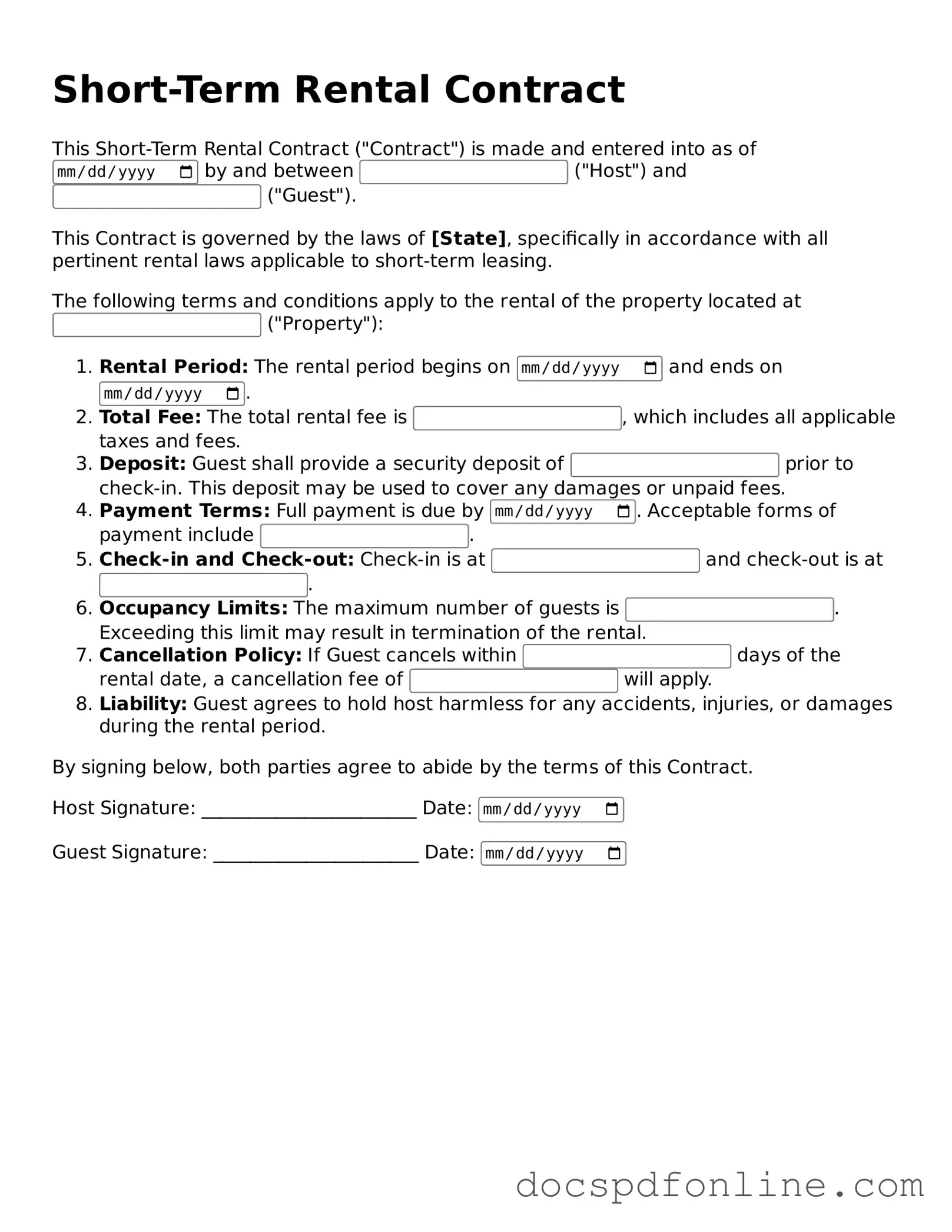Attorney-Approved Short-Term Rental Contract Document
The Short-Term Rental Contract is a legal document that outlines the terms and conditions for renting a property for a brief period, typically less than 30 days. This contract protects both the property owner and the renter by clearly defining responsibilities, payment terms, and rules for the use of the property. Understanding this form is essential for anyone looking to engage in short-term rentals, whether as a host or a guest.
Launch Editor Now

Attorney-Approved Short-Term Rental Contract Document
Launch Editor Now
Save time — finish this form fast
Finish Short-Term Rental Contract online — edit, save, download made easy.
Launch Editor Now
or
↓ PDF File
